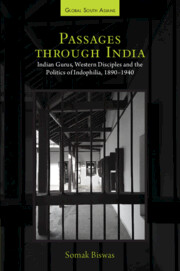Epilogue: What Settles After
Published online by Cambridge University Press: 30 June 2023
Summary
The ‘Ole Bull Will Contest’
February 1911 saw a curious contest in the religio-legal history of the United States, over the will of ‘one Mrs Sara Bull’ who died on 18 January 1911. A prominent American philanthropist, she was also the widow of the famous Norwegian violinist Ole Bull. Her last will and testament reportedly gave away the greater part of her estate worth 500,000 dollars to four Indian or India-based individuals and institutions: Margaret Noble/Sister Nivedita (50,000 dollars), prominent British Hindu disciple of Vivekananda; Jagadish Bose, eminent Indian biophysicist; Swami Saradananda, President of the Ramakrishna Mission; and Mohini Mohan Chatterjee, a lapsed Theosophist. Her daughter Olea Bull Vaughan challenged these ‘Hindu bequests’, blaming her circle of Hindu swamis and friends for a psychic plot that caused her death. Olea's lawyer Sherman L. Whipple declared: ‘[T]he late Mrs Bull was the subject of a “psychic conspiracy” for some time prior to her death’ (Figure E.1) The trial itself was sensational and well covered by dailies like the New York Times and Boston Herald, sometimes making front page.
The deposing lawyer accused the late Vivekananda of leading an Indian cult behind this psychic conspiracy. Both his monastic and non-monastic disciples were held guilty of spreading occult beliefs and practices that drove Bull mad. Vivekananda's death was blamed on his excessive dabbling in occult exercises. Whipple frontally charged Sister Nivedita for Bull's death:
Miss Margaret Noble, an Englishwoman converted to the Hindu religion and now living in Calcutta, was, in his estimation, the chief factor in this conspiracy.… He also produced a letter in which one of the members of the ‘Mystic meditation ring’ had written to another member, alluding to Mrs Bull as the subject of a psychic conspiracy.
On cross-examination, Siri Swanander, Bull's Norwegian caretaker, confirmed that Nivedita was ‘a priestess of the Hindu cult’, who attended to Bull during her last days, administering unknown ‘Indian medicine’. Other witnesses said that the medicines were corrosive in their impact.7Mention was made of a ‘little black pill’ which gave off a ‘strange odor’: ‘Mrs Bull “would lie with her mouth partly open and her eyes partly closed”’.
- Type
- Chapter
- Information
- Passages through IndiaIndian Gurus, Western Disciples and the Politics of Indophilia, 1890–1940, pp. 56 - 65Publisher: Cambridge University PressPrint publication year: 2023

